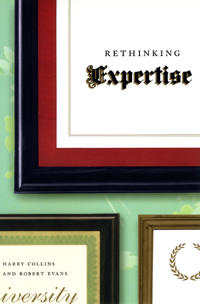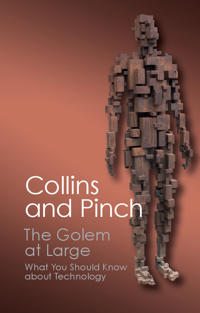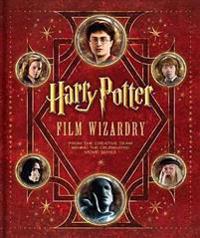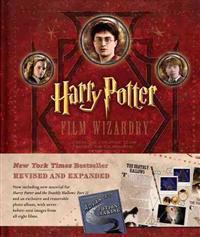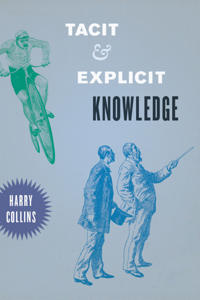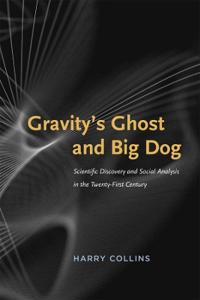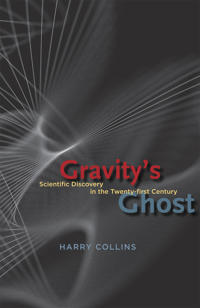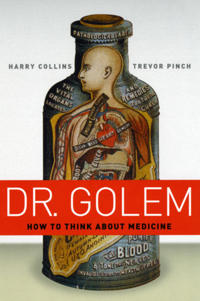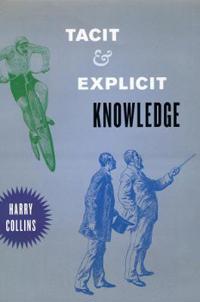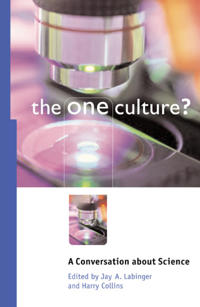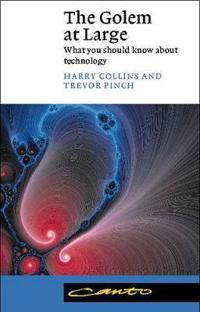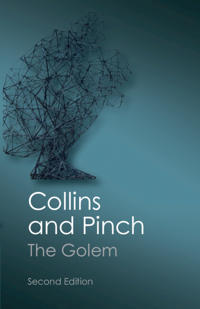Rethinking Expertise (Pocket)
avHarry Collins, Robert Evans, Harry Collins
ISBN: 9780226113616 - UTGIVEN: 200903What does it mean to be an expert? In "Rethinking Expertise", Harry Collins and Robert Evans offer a radical new perspective on the role of expertise in the practice of science and the public evaluation of technology. Collins and Evans present a Periodic Table of Expertises based on the idea of taci[...]
The Golem at Large (Pocket)
avHarry Collins, Trevor Pinch, Harry Collins
ISBN: 9781107688285 - UTGIVEN: 2014-07In the very successful and widely discussed first volume in the Golem series, The Golem: What You Should Know about Science, Harry Collins and Trevor Pinch likened science to the Golem, a creature from Jewish mythology, a powerful creature which, while not evil, can be dangerous because it is clumsy[...]
Harry Potter Film Wizardry [With Removable Facsimile Reproductions of Props] (Inbunden)
avCollins Design
ISBN: 9780061997815 - UTGIVEN: 201010Immerse yourself in the world of the spectacular Harry Potter film series, and learn why Yule Ball ice sculptures never melt, where Galleons, Sickles, and Knuts are really "minted," how to get a Hippogriff to work with actors, the inspiration behind Hogwarts castle, and why Dementors move the way th[...]
Harry Potter Film Wizardry (Inbunden)
avCollins Design
ISBN: 9780062215505 - UTGIVEN: 201210Immerse yourself in the world of the spectacular Harry Potter film series, and learn why Yule Ball ice sculptures never melt, where Galleons, Sickles, and Knuts are really "minted," how to get a Hippogriff to work with actors, the inspiration behind Hogwarts castle, and why Dementors move the way th[...]
Tacit and Explicit Knowledge (Häftad)
avHarry Collins
ISBN: 9780226004211 - UTGIVEN: 201301Much of what we know we cannot say. And much of what we do we cannot describe. For example, how do we know how to ride a bike when we can't explain how we do it? These abilities, which we are unable to articulate, were labeled "tacit knowledge" by chemist and philosopher Michael Polanyi, but here Ha[...]
Gravity's Ghost and Big Dog (Pocket)
avHarry Collins
ISBN: 9780226052298 - UTGIVEN: 2014-01Gravity's Ghost and Big Dog brings to life science's efforts to detect cosmic gravitational waves. These ripples in space-time are predicted by general relativity, and their discovery will not only demonstrate the truth of Einstein's theories but also transform astronomy. Although no gravitational w[...]
Gravity's Ghost (Inbunden)
avHarry Collins
ISBN: 9780226113562 - UTGIVEN: 201012In theory, at least, gravitational waves do exist. We are constantly bathed in gravitational radiation, which is generated when stars explode or collide and a portion of their mass becomes energy that ripples out like a disturbance on the surface of a serene pond. But unfortunately no gravitational [...]
Dr. Golem (Häftad)
avHarry Collins, Trevor Pinch
ISBN: 9780226113678 - UTGIVEN: 200803Dr. Golem explores some of the mysteries and complexities of medicine while untangling the inherent conundrums of scientific research and highlighting its vagaries. In eight chapters devoted to case studies of modern medicine, Harry Collins and Trevor Pinch consider the prevalence of tonsillectomies[...]
Tacit and Explicit Knowledge (Inbunden)
avHarry Collins
ISBN: 9780226113807 - UTGIVEN: 201006Much of what humans know we cannot say. And much of what we do we cannot describe. For example, how do we know how to ride a bike when we can't explain how we do it? Abilities like this were called 'tacit knowledge' by physical chemist and philosopher Michael Polanyi, but here Harry Collins analyzes[...]
The One Culture? (Häftad)
avHarry Collins
ISBN: 9780226467238 - UTGIVEN: 200108Combatants from one or other of the "two cultures" (Science versus the arts and humanities) in the so-called "Science Wars" have launcehed bitter attacks but have seldom engaged in constructive dialogue about central issues. This book is about an exchange of opinions and ideas rather than a trading [...]
The Golem at Large (Häftad)
avHarry Collins, Trevor Pinch
ISBN: 9780521012706 - UTGIVEN: 200205In the very successful and widely discussed first volume in the Golem series, The Golem: What You Should Know About Science, Harry Collins and Trevor Pinch likened science to the Golem, a creature from Jewish mythology, a powerful creature which, while not evil, can be dangerous because it is clumsy[...]
Are We All Scientific Experts Now? (Häftad)
avHarry Collins
ISBN: 9780745682037 - UTGIVEN: 2014-03-31Are We All Scientific Experts Now? (Häftad)
avHarry Collins
ISBN: 9780745682044 - UTGIVEN: 2014-03-31The Golem (Häftad)
avHarry M. Collins, Trevor Pinch
ISBN: 9781107604650 - UTGIVEN: 201203Harry Collins and Trevor Pinch liken science to the Golem, a creature from Jewish mythology, powerful yet potentially dangerous, a gentle, helpful creature that may yet run amok at any moment. Through a series of intriguing case studies the authors debunk the traditional view that science is the str[...]

